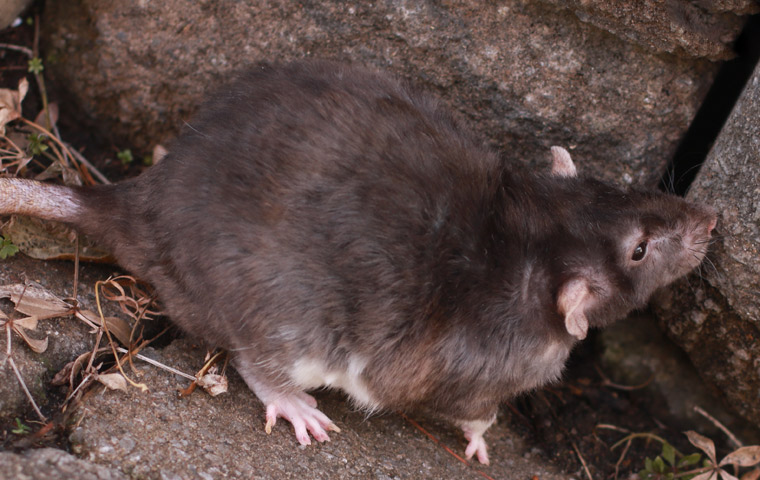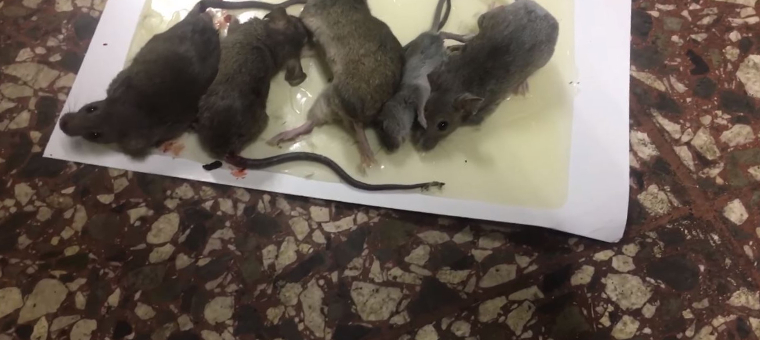-
info@aaanimalcontrol.com
Call us for help in your town
Humane Wildlife Education
Are rats really smart?
Need rat removal in your hometown? We service over 500 USA locations! Click here to hire us in your town and check prices - updated for year 2020.
Rats are intelligent for a whole host of reasons, but one of the best, is because they learn. They are both curious and cautious in nature, and will often try a little bit of food to test the waters, before they delve right in and stuff their faces. You will even find rats that have learned how traps work these days. One can only assume that some rats have seen more than their fair share of trap-related deaths among their social groups, and are desperately avoiding them like … the plague! (Pun intended!)

Sociable, lovable, generous and intelligent, rats have been shown to make very good pets. They are easily tamed (when PET rats are bought from reputable breeders), and will share their last morsel of food with another friend-rat. Rats have been shown to help each escape from tricky situations, and more. In fact, it seems that they have gotten the hang of working together quite well, even leaving urine marks with pheromones to communicate with each other, teaching other members of the group where they can find food, water, shelter, and other necessaries.
Rats have worked out that they can use humans to get around the world, and they have done, hopping onto ships and other human methods of transport to make their way to pastures new. They have also worked out that they work better together, not just keeping each other company, but also breeding as fast as they can to ensure the continuation of their species. The rat population has boomed over recent years, and that’s because the human population has. They use us to succeed, and they're doing a rather good job at it. Who’s clever now?
Do rodents like rats and mice feel pain?
Need rodent removal in your hometown? We service over 500 USA locations! Click here to hire us in your town and check prices- updated for year 2020.
Studies from animal welfare organizations have recently and more progressively shown that animals — a wide and varied mix of them — experience and feel physical and emotional things in much the same way that humans do. One example of this is found in laboratory-bred white mice. When two or more rats are kept in close proximity to each other, and then one or more of them is taken away, the remaining rats will suffer with what appears to experts as loss or a sensation of pining. Pet mice and rats have even been shown to create emotional bonds with their human owners, responding to calls, and even coming in for love and affection without a food treat being necessary. This pet-human bond shows how caring and emotional that rats can be. In the same ways that rats would pine for each other, rats would also pine for their human owners if they were to be taken away from them.

Rodents are sociable creatures. They like to be around others of their kind and, in the case of pets, around people too. Rats have been shown to put themselves in direct line of danger in order to protect another rat that they feel an emotional attachment to. It all seems very humanlike, don't you think?
Of course, studies have also shown that rodents can feel something else too — pain. When poked with something sharp, a rat will react in the same way that a human would react — it tries to move itself away from the sharp object, often yelping out in what sounds to be physical pain.
In makeup and cosmetics testing, rats are often used as the “guinea pigs” to test whether or not something is suitable. White mice and rats are often used in labs for medical testing too. Although more companies are opting against this procedure, understanding it to be cruel, inhumane, and just plain unnecessary, the companies that do test on animals far outweigh those that don't. More larger corporations are being urged to go cruelty-free by animal welfare organizations, such as PETA, and they have some pretty impressive research to back things up. Rats have been shown to display signs of actual, physical pain when they are being tested on, but that doesn't stop these corporations performing experiments, often without any kind of numbing treatment beforehand.
Rats have been shown to have a serious disliking to pain, or anything that has been designed to make them feel uncomfortable (that humans would normally associate with pain). They have also been shown to enjoy tickles and other, more fond signs of affection. The evidence definitely seems to support the theories that these creatures feel pain just as much as other animals do … Just as much as people do.
For more information, you may want to click on one of these guides that I wrote:
How much does rat removal cost? - get the lowdown on prices.
How to get rid of rats - my main rat removal info guide.
Example rat trapping photographs - get do-it-yourself ideas.
Rat job blog - learn from great examples of rat jobs I've done.
rats in the attic
rats in the walls


















